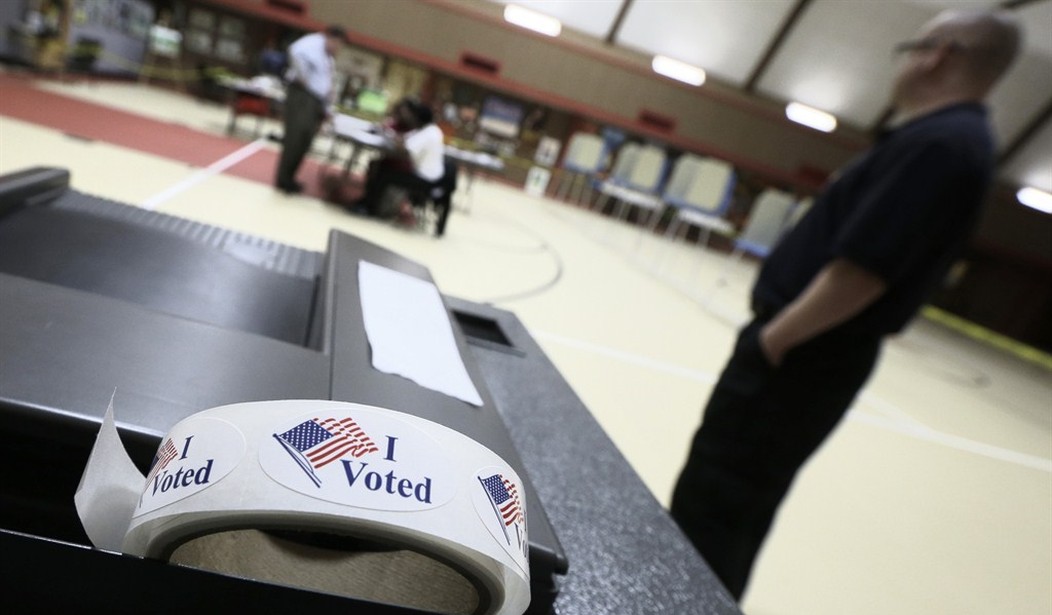The heated debate over voter fraud and illegal voting has largely occurred without reliable data on the extent of the problem, but that may be changing with a new study that is gaining significant attention, including Guy Benson’s piece on Townhall. The study publicized by The Washington Post has shown that noncitizen voting may be much more common than most people probably suspect, and could have changed the result in close elections. Those findings also call into question other aspects of an electoral system that is effectively policed by the “honor system,” as Hans von Spakovsky has argued elsewhere.
Federal law prohibits voting by noncitizens in federal elections, and it also requires states to periodically review and purge ineligible voters from their voting rolls, including those who have moved or are not legally eligible to vote. Despite these mandates, federal officials have refused to provide the citizenship information or assistance that state election officials need to prevent or purge illegal registrants.
Sometimes potential jurors drawn from local voting rolls object to serving by demonstrating that they aren’t citizens, but the actual number of noncitizens on the rolls is notoriously hard to establish. Many voter registration drive sponsors will help anyone register without asking for proof of citizenship, and few states require proof of citizenship to register.
Now, however, The Washington Post Monkey Cage Blog reports on an academic study by Old Dominion University scholars that is quantifying the scope of the noncitizen voting problem. The study will be published in a peer-reviewed journal, Electoral Studies, and it confirms what many election officials have been saying for years: that our safeguards against illegal voting are in need of drastic improvement.
Fourteen percent of the noncitizens in the study sample (presumably legal and illegal aliens) said that they were registered to vote, and 6.4 percent of them admitted or were confirmed to have actually voted in 2008. There have been some sporadic convictions for such illegal voting when discovered, but most election officials lack the tools or resources to detect it in any reliable manner. The survey data relied upon in the ODU study is not perfect, but it begins to fill in the gaps. It is likely that many respondents did not know that their voting was illegal, yet most registrants are required to check a box that they are a citizen, even if proof is not required. If 6.4 percent of respondents admit doing something they should know was illegal, the actual percentage could be higher.
Recommended
Voter fraud and illegal voting anywhere dilutes the lawful votes of all citizens. And a legitimate concern about voter fraud and illegal voting undermines the confidence citizens have in the integrity of the electoral process, particularly in close elections.
There are many common-sense reforms that American jurisdictions could adopt to significantly lessen the risk of illegal voting and reasonable concerns about it, including simple education efforts to inform noncitizens that they are not permitted to vote in federal and most state elections. Almost every democracy on the planet does a better job than America with election integrity, although some salutary reforms have been adopted in various states. Some of these have been recommended by distinguished bi-partisan commissions, including one famously co-chaired by former President Jimmy Carter. And while many voter-id and ballot protection laws have been challenged, almost all of them have been upheld in the courts after lengthy judicial review.
Unfortunately, a potent mix of partisan suspicion and fear mongering has prevented many jurisdictions from adopting needed election integrity measures. The overwhelming majority of Americans from every demographic background favor strong voter-id laws and related protections, but politicians with genuine or imagined fears have blocked many sensible reforms.
Could the resulting illegal voting have tipped many elections? With razor thin margins at almost every office level, it’s hard to deny that it is possible. We may never know for sure. Here is what the authors of the ODU study had to say about that question:
“Because non-citizens tended to favor Democrats (Obama won more than 80 percent of the votes of non-citizens in the 2008 CCES sample), we find that this participation was large enough to plausibly account for Democratic victories in a few close elections. Non-citizen votes could have given Senate Democrats the pivotal 60th vote needed to overcome filibusters in order to pass health-care reform and other Obama administration priorities in the 111th Congress. Sen. Al Franken (D-Minn.) won election in 2008 with a victory margin of 312 votes. Votes cast by just 0.65 percent of Minnesota non-citizens could account for this margin. It is also possible that non-citizen votes were responsible for Obama’s 2008 victory in North Carolina.Obama won the state by 14,177 votes, so a turnout by 5.1 percent of North Carolina’s adult non-citizens would have provided this victory margin.”
Liberal and conservative advocates sometimes criticize each other for ignoring the best scientific research. Government officials and scholars of all stripes should join forces to improve the science on illegal voting and adopt the obvious reforms that would tend to prevent more of it.

























Join the conversation as a VIP Member